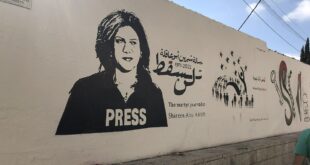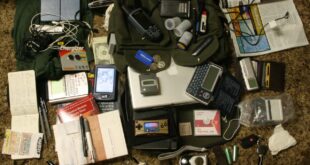In her assignment as the communication director of George W. Bush’s presidential and gubernatorial campaigns, Karen Hughes maintained straight-A grades. In her first trip to the Middle East as undersecretary for public diplomacy in September, however, Mrs. Hughes’ GPA seems to have dropped to a C or even less, according to evaluations by US and international media.
There was no shortage of media speculation over why Mrs. Hughes performance was less than satisfactory. Yet what has been overlooked is one of the most serious flaws in the marketing of the US to Arabs and Muslims: ignoring a basic concept in “Marketing 101.” This concept is the proper identification of target audiences, or more specifically, the segmentation of target audiences according to their potential empathy, apathy or apprehensiveness towards the US.
Despite the obvious fact that America would benefit from reassessing its one-size-fits-all communications strategy, it is not clear whether officials have even begun such an elementary market segmentation exercise. As the US administration scrambled to activate America's international opinion radar after the 9/11 attacks, the first readings encountered were the following: They hate us because they hate our democracy; they hate us because they do not know us; they hate us because they envy our freedom. Such explanations soon became US dogma. According to this logic, Arabs and Muslims are simply oblivious to America's ideals, its values and the rationales for its foreign polices. If only “they” understood “us,” the argument went, “they” wouldn’t hate “us.” Caught up in misperceptions about the Arabs, the US administration could not identify any Arab groups inside the region whom it could count on to utter a positive word on behalf of America. Four years after 9/11, the US administration still cannot find such Arab partners. But this is not because they do not exist, but because US public diplomacy is fishing on the wrong side of the boat. Recent media reports hint that there is hope of a viable catch, however
small it might be.
Practically every report on the do’s and don'ts of US public diplomacy recommends that the US gives priority to students and cultural exchanges. In June, President Bush assigned Dina Habib Powell, an Egyptian-born former White House personnel director, as the assistant secretary of state for educational and cultural affairs. Mrs. Powell is working directly under Karen Hughes, the undersecretary for public diplomacy. But the public diplomacy signals that preceded Mrs. Hughes visit to the region gave the impression that the Bush administration was just experiencing its first encounter with Arabs.
A June 24 International Herald Tribune (IHT) report gives the distinct impression that the first-ever cultural interaction between Americans and Arabs took place over the past 12 months through the State Department-sponsored Youth Exchange and Study Program. The IHT reports that four Arab students were among 300 foreign participants in that program who lived for a year with American families and attended American high schools.
The IHT adds that the last names of these four Arab students will not be made public, since "program officials would not allow their last names to be used, for what they called security reasons." On the positive side, this initiative "appears to have had positive results" adds the report. "The students, all of them precocious and enthusiastic, described a dramatic shattering of their own preconceptions, but also of those held by their host families and newfound American friends."
Officials of the Youth Exchange and Study Program should not have given the impression that the successful encounter of the four Arab high school students was the first of its kind. It need not be regarded as a secret experiment where divulging the family names of the four students represents a "security threat."
By the time I left the United States in the fall of 1989, I had already spent just over a quarter of my life in Greensboro, North Carolina. It was a work and study marathon; first at the University of North Carolina-Greensboro and later at North Carolina & Technical and Agricultural State University. I landed a job at a fast-food steakhouse the same week I arrived in Greensboro in August 1979 and worked there until the last day
of my stay in the US. I had a social security number and paid my state and federal taxes like everybody else. I personally do not see it as a personal security threat in stating publicly that who I am intellectually now is a product of both the Arab as well as the US cultures.
Many hundreds of thousands of Arab students, like me, spent an average of four to five years at US universities. And while thousands are still there or have chosen to remain there, hundreds of thousands like me headed back home after graduation. By virtue of their US education, these Arabs are in key business, government and professional positions in their home countries. Now the US administration is experimenting with only four Arab students to see how their attitudes towards the US would change after staying with American families and study at a US high school for one year?
The intriguing question is: Why is America out of touch with such groups of Arabs who logically ought to be considered in terms of their potential for fostering more positive attitudes towards the US? If the US fails to generate positive attitudes amongst this segment of Arab society, it is very unlikely that it can influence Arabs who know the US only through the media or mere perceptions, let alone the grass root supporters of the perpetrators of the 9/11 attacks on the US.
As a pollster and as an Arab deeply troubled by the lack of meaningful cross-communication between the Americans and the Arabs, I would not conduct new experiments on a handful of young Arabs, giving the impression that Arabs are from the planet Mars and have landed in the US only recently. Before attempting to engage the hard core anti-American Arabs in the Arab world, it may be best to seek to understand and measure the attitudes of hundreds of thousands of Arab university graduates who lived the US experience for a good four to five years and are now in key professional positions in their home Arab countries.
How detached are they? How positive have their experiences been? How disgruntled are they and why? Can they become good-will ambassadors for the US in their own countries? Is there any affinity towards America? What can be done to encourage positive feelings? Most importantly, what can be done to promote a positive cross-communication exchange between Arabs who know America first hand and speak its language, and American society itself?
From the US perspective, the main question ought to be how such segments of the Arab population can be positively engaged. From an Arab perspective, Arabs who graduated from American universities have an obligation towards promoting a more positive understanding between the America and Arab world. Just as there are many elements that could create mutual apprehensions, there are an equally large number of areas where common cultural ground can be found and expanded upon. Continued political and cultural segregation and silence can only result in more mutual remorse and misunderstanding.
For Mrs. Hughes' task to be fruitful, she must identify the different Arab groups according to their level of receptiveness or ambivalence towards the US. Furthermore, rather than giving the impression that the US is just discovering the Arabs, or simply granting scholarships to a few hundred of Arab students, it must also open up to hundreds of thousands who financed their own education in American universities.
While the US State Department labels its efforts to reach Arabs public diplomacy, its Arab university graduates ought to label American efforts to improve cross-communication and cultural exchange as civic diplomacy. Arab civic diplomacy must adopt the model of people-to-people communication and interaction. In contrast the US public diplomacy model is government-to-people communication, with little or no engagement from the US civic bodies or organizations in reaching Arabs. Most Arabs understand there is a clear distinction between the Americans and the US government. Anti-America attitudes need not be translated into full-scale anti-Americanism.
 Arab Media & Society The Arab Media Hub
Arab Media & Society The Arab Media Hub




